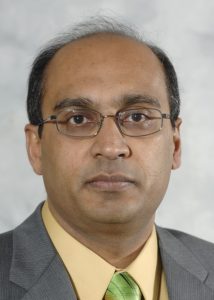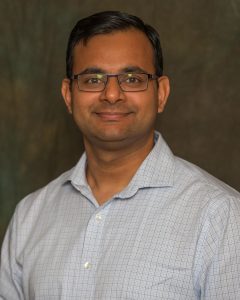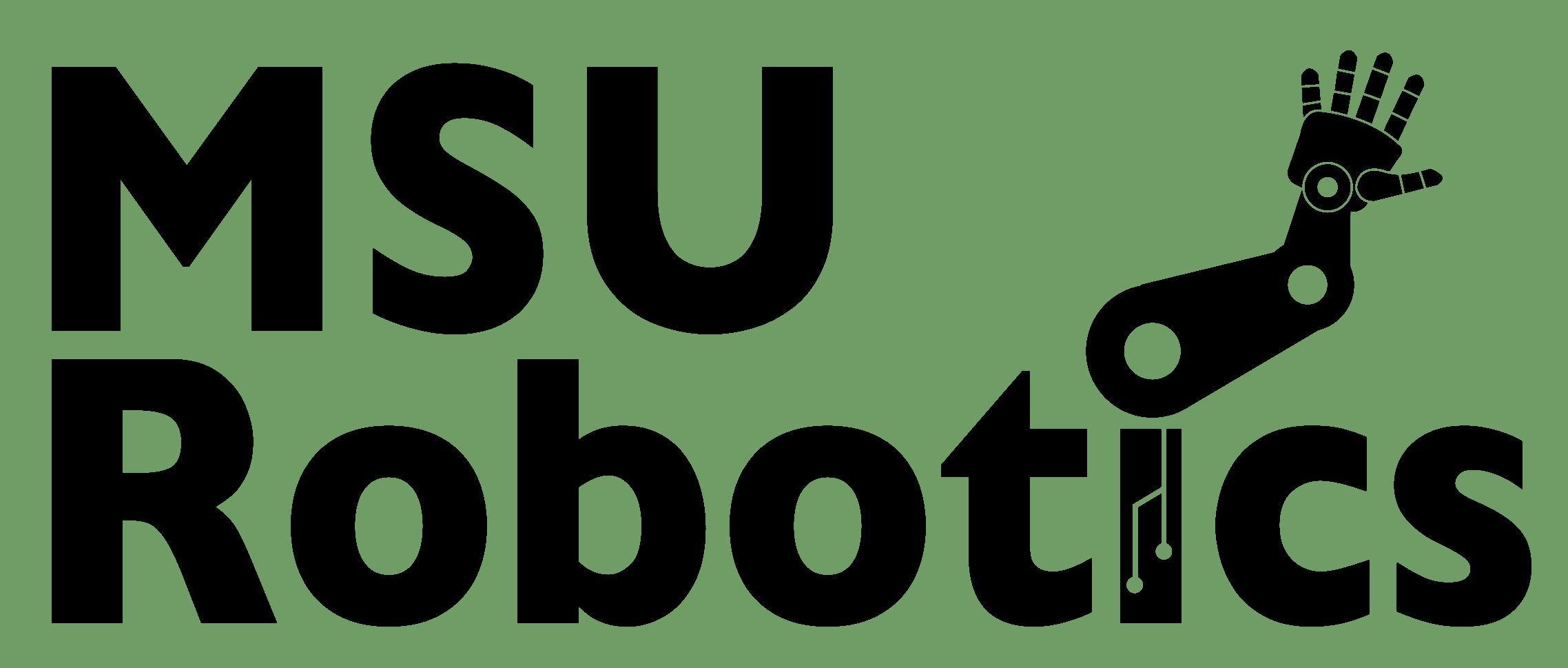Faculty

Bio: Guoming Zhu received the B.S. and M.S. degrees from Beijing University of Aeronautics and Astronautics (currently Beihang University), Beijing, China, in 1982 and 1984, respectively, and the Ph.D. degree in aerospace engineering from Purdue University, West Lafayette, IN, USA, in 1992. He is currently a Gardner Endowed Chair and Professor with the Department of Mechanical Engineering, Michigan State University, East Lansing, MI, USA. He was a Technical Fellow in advanced powertrain systems with Visteon Corporation, and a Technical Advisor with Cummins Engine Co., Ltd. He has over 40 years of experience related to control theory, engine diagnostics/control, and vibration control. He has authored or co-authored over 280 refereed technical papers and two books, and he holds more than 40 U.S. patents. His current research interests include powertrain system modeling, identification, and closed-loop control, autonomous and connected vehicle control and optimization, urban air mobility, and vibration suppression of aero-structural systems. Dr. Zhu is a Fellow of SAE and ASME. He is an Associate Editor of ASME Dynamic Systems and Control Letter and an Editorial Board Member of the International Journal of Powertrain. He was the Program Chair of the 2018 ASME Dynamic Systems and Control Conference.
Google Scholar Page: https://scholar.google.com/citations?user=iZO10LIAAAAJ&hl=en&oi=ao
Webpage: www.egr.msu.edu/zhug

Bio: Hamidreza Modares received a B.S. degree from the University of Tehran, Tehran, Iran, in 2004, an M.S. degree from the Shahrood University of Technology, Shahrood, Iran, in 2006, and the Ph.D. degree from the University of Texas at Arlington, Arlington, TX, USA, in 2015, all in Electrical Engineering. He is currently an Assistant Professor in the Department of Mechanical Engineering at Michigan State University. Prior to joining Michigan State University, he was an Assistant professor in the Department of Electrical Engineering at Missouri University of Science and Technology. His current research interests include reinforcement learning, safe control, machine learning in control, distributed control of multi-agent systems, and robotics. He is an Associate Editor of IEEE Transactions on Neural Networks and Learning Systems and IEEE Transactions on Systems, Man, and Cybernetics: systems.
Google Scholar Page: https://scholar.google.com/citations?user=xhucCdUAAAAJ

Bio: Hassan K. Khalil received his B.S. and M.S. from Cairo University, Egypt, and his Ph.D. from the University of Illinois, all in electrical engineering. He has been with Michigan State University since 1978. He has consulted for General Motors and Delco Products and published over 120 journal articles on singular perturbation methods and nonlinear control. He is the author of Control Systems: An Introduction, High-Gain Observers in Nonlinear Feedback Control, Nonlinear Control, and Nonlinear Systems; and coauthor of Singular Perturbation Methods in Control: Analysis and Design. Dr. Khalil is a Fellow of the Institute of Electrical and Electronics Engineers (IEEE) and the International Federation of Automatic Control (IFAC). He received the IEEE-CSS George S. Axelby Outstanding Paper Award, the AACC Ragazzini Education Award, the IFAC Control Engineering Textbook Prize, the AACC O. Hugo Schuck Best Paper Award, the AGEP Faculty Mentor of the Year Award, and the IEEE-CSS Bode Lecture Prize. At MSU, he received the Teacher-Scholar Award, the Withrow Distinguished Scholar Award, and the Distinguished Faculty Award, and was named University Distinguished Professor. He served as Associate Editor of the IEEE Transactions on Automatic Control, Automatica, and Neural Networks, and as Editor of Automatica for nonlinear systems and control. He was Program Chair of the 1988 ACC and General Chair of the 1994 ACC.
Google Scholar Page: https://scholar.google.com/citations?user=4fHPl8QAAAAJ&hl=en&oi=ao
Webpage: https://www.egr.msu.edu/~khalil/

Bio: Nilay Kant received his B.Tech. degree in Mechanical Engineering from the Indian Institute of Technology (IIT) Delhi, India, in 2015. He pursued his Ph.D. degree in Mechanical Engineering at Michigan State University, East Lansing, Michigan, USA in from 2015 to 2020. He was a visiting student researcher at the NASA Jet Propulsion Laboratory, Pasadena, California. After getting his doctoral degree, he worked as a Senior Mechatronics and Control Engineer at Nexteer Automotive Corporation, Saginaw, Michigan and as a Senior Controls Engineer at Mainspring Energy, Menlo Park, California, USA. Dr. Kant received the outstanding graduate student award for his doctoral research at Michigan State University. He has published close to 20 papers in top peer reviewed journals and conferences in robotics and control. His research interests include impulsive control, underactuated robots, dynamics and control of mechanical systems and energy efficient technologies. His hobbies are singing, playing flute and cricket.
Research areas: Controls, Robotics, Impulsive Control, Underactuated Systems, Energy Efficient Technologies
Google Scholar Page: https://scholar.google.com/citations?user=v-BjEv4AAAAJ&hl=en&oi=ao

Bio: Ranjan Mukherjee received his PhD from the University of California in 1991. He was a faculty at the Naval Postgraduate School from 1991 to 1996. Since 1996, he has been a faculty at Michigan State University. His research interests lie in the broad area of robotics and mechatronics.
Google Scholar Page:https://scholar.google.com/citations?user=m6fZXgQAAAAJ&hl=en

Bio: Dr. Tong (Tony) Gao is an Associate Professor at the Department of Mechanical Engineering and Department of Computational Mathematics, Science, and Engineering at Michigan State University, where he directs the Complex Fluids Group. He obtained his Ph.D. degree in Mechanical Engineering at the University of Pennsylvania in 2012. Then he worked as a research scientist in the Applied Mathematics Lab at the Courant Institute of Mathematical Sciences of New York University. Dr. Gao works in the interdisciplinary areas of soft condensed matter, fluid mechanics, and materials via mathematical modeling and high-performance computing. His expertise lies in constructing advanced computational mechanics models for fluid-solid systems with high complexities (e.g., many-body interactions) and nonlinearity (e.g., fluid/elastic structure interactions), and developing scalable simulation tools to promote data-driven, physics-informed studies. Dr. Gao received the NSF CAREER award in 2020. The current focused research topics include bioactive matter, soft robotics, and patient-specific medical models.
Webpage: https://www.egr.msu.edu/~gaotong/

Bio: Vaibhav Srivastava received the B.Tech. degree (2007) in mechanical engineering from the Indian Institute of Technology Bombay, Mumbai, India; the M.S. degree in mechanical engineering (2011), the M.A. degree in statistics (2012), and the Ph.D. degree in mechanical engineering (2012) from the University of California at Santa Barbara, Santa Barbara, CA.
Dr. Srivastava is currently an Associate Professor of Electrical and Computer Engineering at Michigan State University. He is also affiliated with Mechanical Engineering, Cognitive Science Program, and Connected and Autonomous Networked Vehicles for Active Safety (CANVAS). He served as a Lecturer and Associate Research Scholar with the Mechanical and Aerospace Engineering Department at Princeton University, Princeton, NJ from 2013-2016. He serves on the IEEE Control System Society conference editorial board since 2018. He received the best paper award (as coauthor) at the 2014 European Control Conference. His research focuses on Cyber Physical Human Systems with an emphasis on mixed human-robot systems, networked multi-agent systems, aerial robotics, and connected and autonomous vehicles.
Google Scholar Page: https://scholar.google.com/citations?user=L_K_w18AAAAJ&hl=en
Webpage: https://www.egr.msu.edu/~vaibhav/

Bio: Dr. Tan received his Bachelor's and Master's degrees in automatic control from Tsinghua University, Beijing, China, in 1995, 1998, respectively, and his Ph.D. in electrical and computer engineering from the University of Maryland in 2002. From September 2002 to July 2004, he was a Research Associate with the Institute for Systems Research (ISR) at the University of Maryland. In August 2004 he joined the Department of Electrical and Computer Engineering at Michigan State University, where he is currently an MSU Foundation Professor and the Richard M. Hong Endowed Chair. His research interests include underwater robotics, soft robotics, smart materials, and control systems. Dr. Tan's research has been supported by National Science Foundation, Office of Naval Research, National Institutes of Health, U.S. Geological Survey, the Great Lakes Fishery Commission, Toyota, Naval Research Lab, U.S. Department of Transportation, and MSU Foundation, among others.
Dr. Tan is a Fellow of IEEE and ASME. He received an NSF CAREER Award in 2006, MSU Teacher-Scholar Award in 2010, Withrow Distinguished Scholar Award (senior category) from MSU College of Engineering in 2018, and Distinguished Alumni Award from Department of Electrical and Computer Engineering at University of Maryland in 2018. He has received several Best Paper Awards. He has served as a Senior Editor for IEEE/ASME Transactions on Mechatronics (TMECH), an Associate Editor/Technical Editor for TMECH, Automatica, and International Journal of Advanced Robotic Systems, and a guest editor for six journal special issues or sections. Dr. Tan has served on the organizing or program committees for a number of international conferences, including serving as the Program Chair for the 15th International Conference on Advanced Robotics (ICAR'2011), General Chair for the 2018 ASME Dynamic Systems and Control Conference (DSCC'2018), Program Chair for the 2020 IEEE/ASME International Conference on Advanced Intelligent Mechatronics (AIM'2020), and General Chair for 2023 American Control Conference (ACC'2023). Dr. Tan is also keen to integrate his research with educational and outreach activities, including serving as Director of an NSF-funded Research Experiences for Teachers (RET) Site program at MSU from 2009 – 2016 and Curator of a robotic fish exhibit at MSU Museum from April 2016 to January 2017.
Google Scholar Page: https://scholar.google.com/citations?user=tsJSW2MAAAAJ&hl=en
Webpage: https://www.egr.msu.edu/~xbtan/
